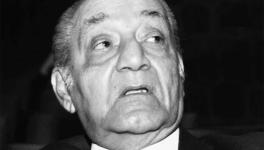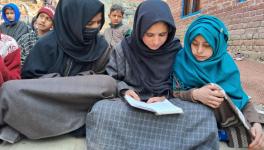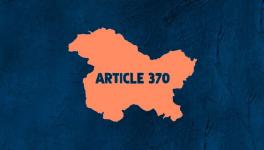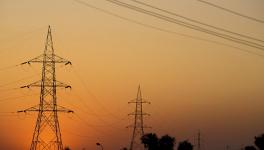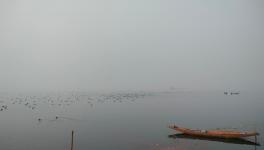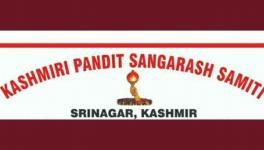Rewarding Army Chief for Political Assistance?
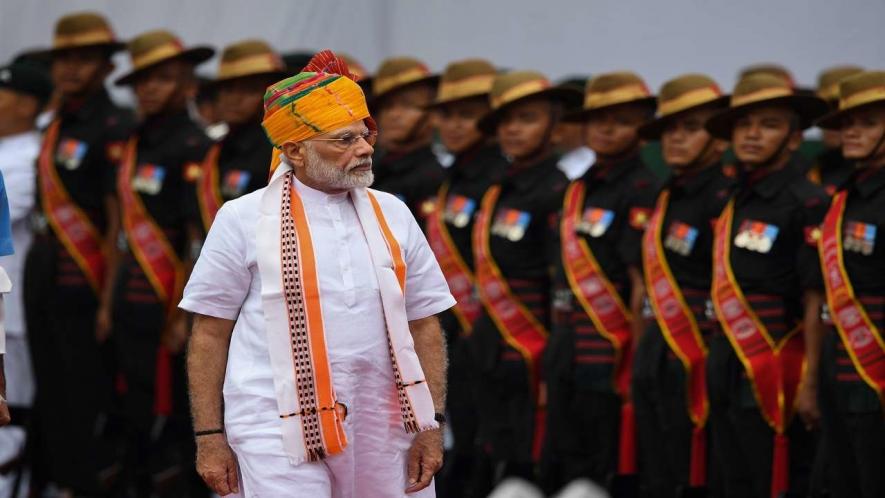
The chapter on reduction of Jammu and Kashmir (J&K) to a Union Territory is not quite closed, considering the extent of suppression of an impending revolt by Kashmiris. There could even be a fifth Indo-Pak war and there is already brinkmanship over the nuclear status, evident in the remarks of defence minister Rajnath Singh on the No First Use (NFU) policy. The possibility of nuclear involvement grows if war breaks out first.
In short, there are no guarantees. Around 45,000 paramilitary troops were pushed into Kashmir post haste, before the Constitution was trampled upon earlier this month. These troops are unlikely to feel any affinity or affiliation with the Kashmiris. They would, in fact, blame the Kashmiris for their inconveniences during deployment.
Despite the media blackout, ominous reports have come of young boys blinded by pellet guns and arbitrary detentions. A video clip of a crowd being dispersed while automatic weapons are heard being fired has gone viral. That all possibilities exist is confirmed by the fact that the National Security Adviser (NSA) Ajit Doval was camping out in Kashmir.
Eventually, the emergency measures taken in Kashmir will need to be loosened. There is talk of phone lines being reopened (some landlines were opened today). Thereafter, the security analysis that preceded this clampdown will be put to its real test. The analysis had concluded that India could handle the aftermath of its meddling with the Constitution. This is the advice that the military, which is in charge of security, can be expected to have given the political establishment. This is what would have emboldened the political apparatus to politically demolish J&K.
Immediately after its J&K adventure, the Army seems to be getting an ‘appropriate’ reward for its politically useful inputs regarding the state. Media accounts say that the Army Chief is the front-runner for the Chief of Defence Staff (CDS) position that the Prime Minister said would soon be cleared, from the ramparts of Red Fort during his Independence Day speech.
It is likely that the military advice to the government covered all its bases: The action and reaction, the expected immediate aftermath in which a civilian uprising could not be ruled out and the potential for a long-term insurgency to be inevitably sparked off after an initial phase of unrest.
It would have dealt with the ongoing proxy war waged by Pakistan in the region and chances that it will intensify. But, more significantly, it would have had to allay any fears of a military reaction against India from Pakistan. On all these counts, it is clear from the decision taken by the government in J&K and the manner in which it was executed—the template of suppression across the Valley—that the Army’s input indicated that it felt capable of dealing with the situation.
This goes back to the basic question of whether the Army provided an input the political level wished to hear; and if the CDS post is indeed a kind of reward for it. The other question is whether the possibility of such a post finally being created influenced the Army’s position on the threat perception that would naturally inform any decision-making on Article 370.
Neither is an idle question. The post of CDS finally clearing all hurdles of the past is such that makes these questions inescapable. In the coming weeks and months, it will become clear whether the Army was right in its assessment that the security forces—under its operational control—are up to the task of handling a renewed insurgency and proxy war alongside the threat of war, even nuclear escalation.
For the moment, things do appear under control. But this is no cause for self-congratulation. Already Pakistan has claimed an incident on the Line of Control (LoC). Even if such claims are tailored to influence the United Nations Security Council into holding a closed-door meeting on Kashmir, as requested by Pakistan and backed by China, it may take the military route. If Pakistan’s diplomatic offensive does not gain traction, it would consider that route open.
Military action would have the advantage of getting the UN Security Council to refocus on Kashmir. The top body to deal with threats to peace and international security would quite possibly regard a face-off between two nuclear armed neighbours as a call for its attention.
Pakistan will also use the opportunity of a flare up on the LoC to pump in its ‘good terrorists’ to give its proxy war a fresh boost. Of late Pakistan has been relatively reticent. This has given the Indian military an indubitably upper hand. Now, the changed political conditions—after the scrapping of J&K’s special status—would make Pakistan consider the proxy war ripe for rejuvenation.
No doubt India’s Army can handle the insurgency, the proxy war and military action by Pakistan. It is on the alert in any case, and the paramilitary is already in position in the Valley in case it confronts a conventional threat. India also has deterrence measures in place—having replied with a Balakot to a Pulwama.
Nevertheless, a military capability is not the sole criteria worth considering. It remains to be speculated whether the worsening of the situation in J&K and along the LoC, for the next few years, should also have been emphasised. The situation created in the Valley after Hizbul commander Burhan Wani’s killing in 2016 had somewhat stabilised. After the Kargil War, during which Pakistan had sneaked in militants trained in the new tactic of fidayeen attacks, took some four years to wrap up. This included the continuous operational deployment after Operation Parakram. Now, one wonders—did the Army sufficiently sensitise the government to the heightened security threat that arise from its moves in J&K?
Now that the government has rationalised and attempted to legitimise its actions in J&K by making promises of better governance and more development in the region, it would appear that this was not the case. It does not require military expertise to comprehend that good governance and development are impossible in an aggravated security situation. The early nineties are India’s precedent. Even Central control exercised over the region over large phases of this period did little to aid progress in Kashmir.
Even the possibility of handling the military threat posed by Pakistan can prove to be wishful thinking. So far, the conundrum posed by Pakistani tactical nuclear weapons has not been answered doctrinally. There have been test-bed exercises this year of integrated battle groups that—presumably small but lethal—would be able to operate under the nuclear threshold. However, these have not been operationalised so far. Only two will be on road by the end of the year; one defensive and one offensive and only covering the Sialkot Bulge.
For this reason, there is no guarantee that war with Pakistan would not go nuclear. Pakistan has every reason to project its nuclear deterrence in order to cover its conventional inferiority and crystallise external political intervention. It is with reason the defence minister made his intervention on the NFU policy on Friday.
In light of these self-evident factors that surely ought to figure in any threat analysis, how did the Army’s inputs ignore these in its advice? If the advice it tendered was to not proceed with the political re-engineering of Kashmir’s status, why has no one resigned? Consequently, the question arises of the government considering the elevation to CDS as a reward for the Army Chief for his politically astute advice.
The situation is a fait accompli: there are no calls for reticence in the manner in which support for the Army and the military as a whole are being expressed. The military, perhaps, needs all the support it can get since a challenging series of events loom in the distance. It would likely serve as the bastion, as it always has. However, once the dust settles, any post- mortem done in the future must place these questions on the table. The starting point should be who will shoulder the responsibility for any civilian deaths that take place as events unfold, one way or another.
Ali Ahmed is a visiting professor at the Nelson Mandela Centre for Peace and Conflict Resolution, Jamia Millia Islamia, Delhi. The views are personal.
Get the latest reports & analysis with people's perspective on Protests, movements & deep analytical videos, discussions of the current affairs in your Telegram app. Subscribe to NewsClick's Telegram channel & get Real-Time updates on stories, as they get published on our website.










